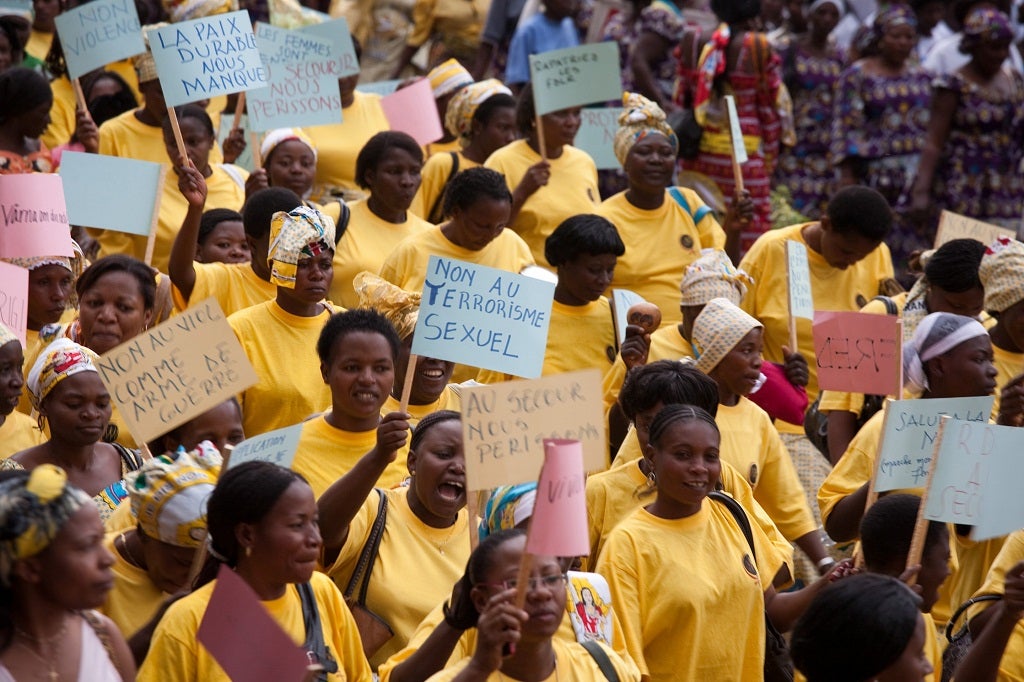Caitlin Moran and Lena Dunham are great, but take note Vagenda - feminism isn't just a white, middle class movement
We at the Black Feminists blog aren't the only ones who find it uncomfortable being told where the limits of feminism lie by mainstream writers

Your support helps us to tell the story
From reproductive rights to climate change to Big Tech, The Independent is on the ground when the story is developing. Whether it's investigating the financials of Elon Musk's pro-Trump PAC or producing our latest documentary, 'The A Word', which shines a light on the American women fighting for reproductive rights, we know how important it is to parse out the facts from the messaging.
At such a critical moment in US history, we need reporters on the ground. Your donation allows us to keep sending journalists to speak to both sides of the story.
The Independent is trusted by Americans across the entire political spectrum. And unlike many other quality news outlets, we choose not to lock Americans out of our reporting and analysis with paywalls. We believe quality journalism should be available to everyone, paid for by those who can afford it.
Your support makes all the difference.A number of us at the Black Feminists blog were amazed to see a recent post by the editors of Vagenda magazine declare that “feminism is, and to an extent always has been, a white, middle class movement”. We’re not sure the feminists of the Indian Chipko movement in the 1970s or the Southall Black Sisters would agree either.
In recent weeks "intersectionality” - short-hand for people being aware of difference and trying not to exclude others because of their race, gender, sexuality etc - has become a major talking point between feminists. But the way debate on the subject has gone worries those of us who advocate this kind of thinking.
First, complaints about lack of representation of black people in Lena Dunham's TV shows Girls were deemed irrelevant and literally not worth giving a shit about by Caitlin Moran, in an explosive and over-hasty tweet.
Now we’re told by the Vagenda editors Rhiannon Lucy Cosslett and Holly Baxter that talking about issues of race in terms of “intersectionality” is too academic and makes feminism inaccessible. If we’re being honest, both come across as excuses to avoid talking about the issue itself and dealing with how it affects people.
It seems more than coincidence that these attempts at diverting the discussion onto what is and isn't too academic come so soon after Moran was accused of practising exclusivity.
Intersectionality may be an academic term that has spilled into common usage among some feminists, but that doesn’t mean that the concept it refers to isn’t very real and worthy of discussion. It sounds dry, but to explain the concept “being aware of difference and trying not to exclude others” every time it's needed is impractical - and won't fit in a 140 character tweet.
In many respects, obsessing about the use of one word risks missing the point, and worse still actively dismissing the views of people of colour and others.
Imposing a hierarchy of accessible language before allowing discussion of issues like feminism, racism and classism is dishonest. Language is important, but most feminists who use that terminology only really do so with others who know what it means.
Feminism isn’t some elitist concept floating up in the heavens. It also isn’t a universal coherent body of thought. In reality many people who don’t actively identify as or even distance themselves from the scary f-word still have feminist views. Similarly many people know how intersectionality affects them and others around them, even if they don’t consider themselves to be intersectional or even know what it means.
The most frustrating thing about this is that most sensitive and aware people would respond to having this issue flagged up by saying “thanks for your opinions, we’ll take it on board” or “I wasn’t aware that was an issue, I’ll bear it mind in the future”. But no, what we’re seeing is the stamping out of alternative voices and privileged feminists closing ranks to protect each other from criticism from those they are marginalising.
The real accessibility problem is not the use of one word among perhaps more academically-minded feminists, but the closing down of debate by so-called “big name feminists”.
It’s easy, perhaps, to dismiss my complaint as feminist “infighting” and an example of "issues of race, class, religion, sexuality, politics and privilege…fracturing feminist dialogue”. But if this fantasy universal feminism actively marginalises other voices, and is so defensive when constructively challenged, it’s not really a kind of feminism worth having at all, is it?
A version of this article first appeared on Black Feminists
Join our commenting forum
Join thought-provoking conversations, follow other Independent readers and see their replies
Comments